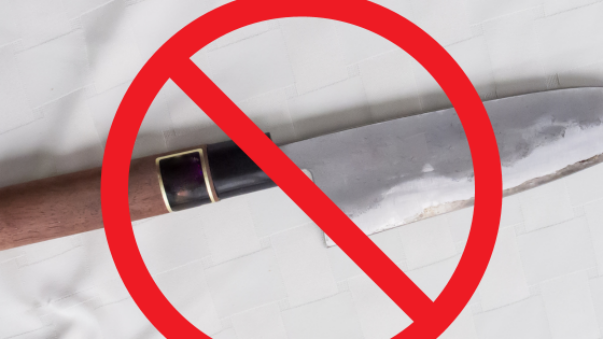
November 29, 2023
Court Persuaded Not to Give a Prison Sentence for Possession of a Knife

In September 2022, Hill Twine Solicitors was instructed by a client, MM, for two offences of speeding. Both offences were for driving at 91 mph in a 60 mph speed limit zone. Niall Theobald represented our client and successfully persuaded a District Judge not to impose a driving disqualification. Read on for more information.
Hill Twine Solicitors was instructed by MM to represent him at Poole Magistrates’ Court for two offences of speeding. Our client had been driving in Cornwall when he was caught on two separate occasions driving at 91mph in a 60mph speed limit zone. He was prosecuted for two offences of speeding.
The case was originally listed in the area where the speeding offences were committed, but upon application, was transferred to the client’s local court, namely Poole Magistrates’ Court, for a court hearing. Niall Theobald was instructed to represent the client. Although the hearing was listed in a time slot late in the day, Niall was able to persuade the court to deal with it earlier, at a time more convenient for the client.
There was no dispute about driving above the speed limit. Upon taking full instructions from the client and considering the prosecution papers in detail, Niall was satisfied that it was appropriate for the client to enter guilty pleas to both offences. The client accepted that he was driving in excess of the speed limit on both occasions. The difficulty facing the client, however, was the prospect of being disqualified from driving.
For speeding at 91mph in a 60mph zone, the sentencing guidelines state a driver should be disqualified for between 7 and 56 days
The courts use sentencing guidelines when passing sentence to assist in determining the appropriate sentence. The purpose of the guidelines is to facilitate consistency across the country when courts are sentencing people for similar offences. Magistrates or a judge will consider the facts of the particular offence it is dealing with and decide where the matter falls within the sentencing guidelines. The magistrates court is required by law to follow the sentencing guidelines, unless it is in the interests of justice not to do so. Accordingly, it takes considerable skill to persuade a court to depart from the sentencing guidelines and impose a lower sentence.
For MM, the sentencing guidelines for driving at 91mph in a 60mph zone clearly state that the starting point is for a court to impose a Band C fine (that is a fine at a level equivalent to 150% of person’s ‘relevant weekly income’) and disqualify the defendant from driving for between 7 and 56 days. Note that this is for one offence. For two offences the court is entitled to consider imposing a harsher sentence, including a lengthier disqualification, to reflect the totality of offending. To put it another way, a court can take the view that the speeding offences are aggravated by virtue of there being multiple offences and impose a harsher sentence than if the defendant only had one offence.
Niall Theobald had taken full instructions from the client and understood a number of key points that he was able to advance in mitigation on behalf of the client. He took the time to prepare as persuasive an argument as possible to avoid the sentence suggested by the sentencing guidelines. Niall appeared before the District Judge at Poole Magistrates’ Court and addressed her on the sentencing guidelines. He acknowledged the starting point but skilfully advanced his client’s mitigation and arguments to depart from the guidelines.
The District Judge was persuaded by Niall’s submission on behalf of the client. Not only was she persuaded not to disqualify our client from driving, she was persuaded not to impose the maximum penalty points for speeding. In the event of being convicted for speeding, a driver can be disqualified from driving or be given penalty points. The range is 3 to 6 penalty points. In this case, Niall persuaded the judge to depart from the sentencing guidelines to impose 5 penalty points for each offence. In addition, he persuaded the court to impose a fine which was significantly less than the client’s relevant weekly income. The fine for each offence was at a level of 33% of the client’s income, rather than 150% as stated in the sentencing guidelines.
In this case, Niall Theobald persuaded the judge to depart from the sentencing guidelines to impose 5 penalty points for each offence.
If you are facing court proceedings for a driving offence you will be at a significant advantage if you are legally represented by someone who is skilled at addressing the court, analysing the sentencing guidelines, and obtaining the crucial information to persuade a court to impose a more lenient sentence than may otherwise be the case. For MM, Niall Theobald was able to persuade a court not to impose a driving disqualification, not to impose the maximum number of penalty points, and to impose a fine at a much lower level than set out in the sentencing guidelines. To learn more about Hill Twine’s motoring work, click here.

November 29, 2023
Court Persuaded Not to Give a Prison Sentence for Possession of a Knife

November 29, 2023
Client Acquitted of Road Rage Offences after CPS Drop Case

October 2, 2023
Philomena Murphy Successfully Persuades CPS to Drop Assault Case

September 15, 2023
Luke Naveira Commences a Solicitor Apprenticeship to Qualify as a Solicitor

July 27, 2023
Not Guilty Verdict Secured by Guy Gosheron in Assault by Beating Case

March 3, 2023
Sarah Hill Secures Excellent Outcome for Client in Drink Driving Case

February 2, 2023
Client Found Not Guilty of Rape and Assault by Penetration

January 13, 2023
Meet Zara Keu, Hill Twine Solicitors’ First Solicitor Apprentice

December 23, 2022
Client Acquitted of 15 Offences of Rape & Sexual Assault by Crown Court Jury
If you have any questions or need advice